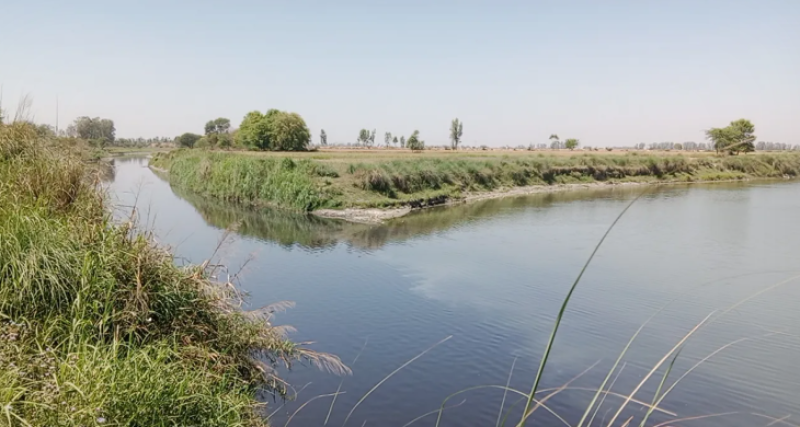- Sri Lanka urges Pakistan to reconsider India match |
- Centre of World Cup storm Mustafizur lands PSL deal with Lahore |
- BNP and Jamaat election camps vandalized in Gazipur |
- Dhaka requests UN rights office investigation into Hadi murder |
- Bangladesh establishes formal diplomatic ties with Grenada |
Without reliable data, is there any hope for our Rivers?

Drain No. 2 carrying untreated effluents in Yamuna river in Panipat. March 30, 2025, SANDRP
SANDRP
The following report this week about lack of reliable data on Rivers raises right questions, including if there is any hope for our rivers without such reliable data? The report however, misses the point that Central Water Commission, which works more like a lobby for large dams, has clearly no interest in sustaining, reviving or rejuvenating our works.
The report also narrates how difficult it is to get even available limited data on rivers. That takes to another issue that the report misses: Quality of available data. With poor quality of the data, what interest would the data gathering institute have, when they know the quality of the data and clearly would not like to be exposed on that score.
But it can be argued that what stops the state governments from gathering reliable data of necessary type and quality? The reality is that the CWC is supposed to be India’s premier water resources agency, and it knows and acts like one. The states have to depend on CWC for approvals of all the projects, including dam safety, policy, financial resources, besides the data. This ensures that almost no state has the resources or has the will or feel the necessity of gathering good quality data independent of CWC.
There is clearly a need for shake up of institutional architecture in India’s water resources sector with an independent set of institutions including one in charge of gathering all the water and river related data and putting it out promptly in public domain. It is only such an independent institution with no conflict of interest or axe to grind that will provide a glimmer of hope for our rivers.
Lack of Reliable data on rivers in India imperils River Revival The SAC-2 meeting revealed the persistent paralysis in our water-governance ecosystem. India’s rivers are drying, polluted and poorly monitored. Yet policy and infrastructure decisions continue to rely on patchy, inaccessible data. River management remains reactive, not knowledge-driven. Strengthening India’s data systems is an urgent governance necessity.
The Condition Assessment and Management Plan (CAMP), a national initiative under the Ministry of Jal Shakti’s National River Conservation Directorate, offers a glimmer of change. It aims to prepare scientific, basin-level management plans for six major rivers: Godavari, Krishna, Mahanadi, Cauvery, Narmada and Periyar. The programme brings together institutions such as IISc and several IITs/NITs to assess the present conditions and recommend interventions for river rejuvenation.
All the research teams stressed the need to monitor rivers at higher frequency and finer spatial scales. Everyone agreed that robust data are the foundation for good river management. But how to overcome the institutional bottlenecks that make even existing data inaccessible or unreliable was not addressed.
One major takeaway was the inadequacy of our flow-monitoring network. The Central Water Commission (CWC) stations are simply too sparse to capture today’s ground reality. For instance, there are only two discharge stations on the 172 km long Arkavathy river, which drains which drains a 4,178 sq km catchment. Both are located near the downstream stretches, leaving the highly urbanised upper reaches (read Bengaluru’s outflows) completely unmonitored. Without such information all plans remain guesswork.
Experts are forced to expend months pursuing essential data that should already be publicly accessible. If such datasets were open-source and standardised, we could move faster from: data—>diagnosis—>decision —>implementation —>monitoring —> learning.
Transparent data is not just a technical need; it is a democratic necessity. When information about rivers is public, citizens can engage, question and contribute. Our national scientific temperament grows when ordinary people can see, interpret and debate the same evidence that experts and officials rely on. Access to shared data transforms people from subjects to citizens. It builds accountability because decisions can then be verified, not just announced. If we can make data accessible, reliable and transparent, our rivers stand a chance of revival, and our governance, a chance of reform. – South Asia Network on Dams Rivers and People (SANDRP)

